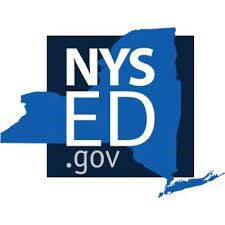The Board of Regents conducted their monthly meeting on Monday, November 16th via video conference. Regent Nan Meade opened the session with some reflections on a recent to visit to speak with students from Wadleigh Secondary School for the Performing Arts in New York City. Their discussion focused on student thoughts and opinions on their educational experiences as they relate to race equity and equality. Regent Meade shared how impressed she was with the honesty, thoughtfulness, and depth of the dialogue as so many participants expressed the need for increased attention to racism and the struggle for social justice in our schools. Several other Board of Regents members shared thoughts on similar experiences with recent school visits and expressed that they look forward to the work the Board will be doing in the future with listening to student voices on this issue.
Board of Regents members were presented with a summary of the initiatives NYSED is undertaking during the pandemic toward Supporting the Whole Child in the areas of social, emotional and behavioral wellness. Several senior staff members from various NYSED departments updated Board members on current initiatives and collaborations. Presenters included:
Kathleen DeCataldo, Asst. Commissioner for the Office of Children and family Services (OCFS), spoke about the OCFS partnership with the Department of Health which is assisting schools with guidance on potential issues of educational neglect or abuse. OCFS is also continuing their efforts to support students and families with meals both remotely and in school.
Mary Beth Casey, Asst. Commissioner for the Office of Curriculum & Instruction and Early Learning, presented information about the work her office is doing to provide guidance and support that enables students to safely participate in Physical Education classes. Asst. Commissioner Casey also outlined resources that are available to educators regarding Erin’s Law. Enacted in August 2019, the legislation requires that all students in K-8 receive instruction designed to prevent child exploitation and child sexual abuse.
Anael Alston, Asst. Commissioner for the Office of Access, Equity, and Community Engagement, provided information on the work his department is doing to sustain the My Brother’s Keeper initiative during the pandemic.
Elisa Alvarez, Associate Commissioner for the Office of Bilingual Education and World Languages, talked about the online resources, supports, and workshops they have developed to support ELL families with remote learning. A special effort has been made to provide the resources in as many languages as possible.
Alison Armour Garb, Chief of Staff for the Office of Education Policy, presented information on the work her office is doing to implement the CARES Act funding. The 19 million dollar grant is being used to develop and implement professional development resources to support remote/hybrid learning.
Chris Suriano, Asst Commissioner of Special Education, spoke about the work his department is doing to support Family and Community Engagement (FACE) Centers.
Amy Molloy, Director of School Mental Health Resource and Training Center Mental Health Association in New York State (MHANYS), spoke about their partnership with NYSED that provides free resources for parents/caregivers and education professionals to support mental health and wellness.
The link below includes slides that summarize each of the presentations and includes contact information and links to many of the resources that were discussed.
Several previously approved amendments providing flexibility for COVID-19 related issues were extended. A new amendment was approved which extends provisions for English Language Learners. Timelines have been extended for the ELL identification, the process for parental notification and providing required information, and the English as a New Language/Bilingual Education placement procedures when a school is required to shift to full remote instruction.
The Board was presented with an updated list of adjusted priorities as they continue to work toward finalizing the 2021-22 Non-State Aid Budget. The chart, included in the link below, lists proposed 2021-22 budget requests and whether funding for the item will be pursued for the coming year, or deferred until the state’s fiscal situation improves. The finalized proposal will be presented to the Board of Regents for adoption at the December 2020 meeting.
The Board was also presented with a 2021-22 Conceptual State Aid Proposal. The proposal includes several items for consideration relating to the COVID-19 fiscal crisis. Recommendations for consideration include:
- Ensuring that, in the event permanent state aid reductions must be made, the reductions are implemented on a progressive, wealth-adjusted basis with equity between public school districts and charter schools.
- Amending Education Law to provide reimbursement provisions to support the infrastructure necessary for maintaining transportation services during school closures.
- Fully funding reimbursement to school districts for expense-based aids such as Building Aid and Transportation Aid.
- Repealing the School Aid Growth Cap due to the impact the pandemic is having on the average personal income growth this year.
- Mandating relief proposals that would enhance school district reserve fund flexibility and increase options for small districts to meet unanticipated expenses.






